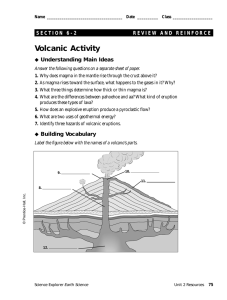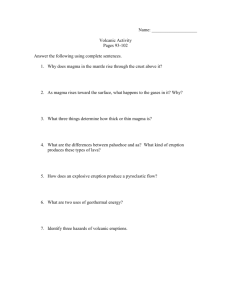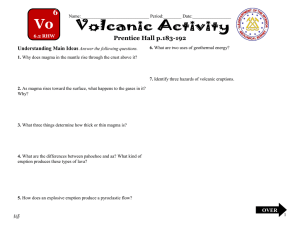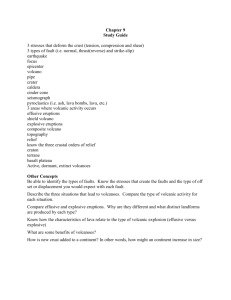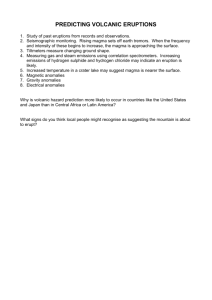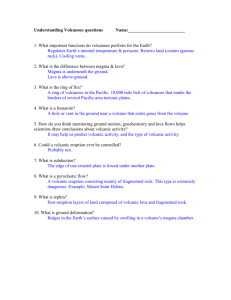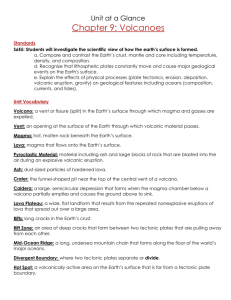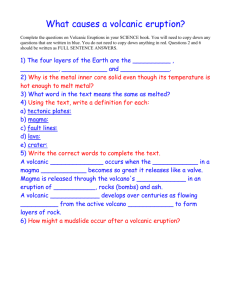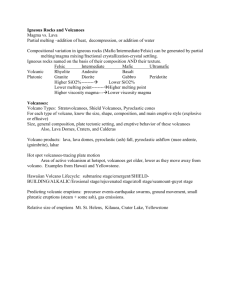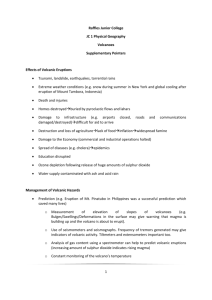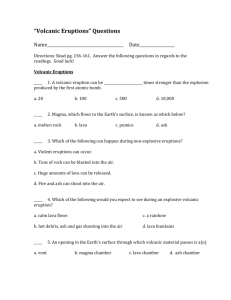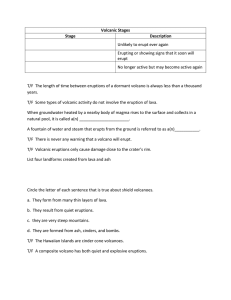Volcano Notes: Eruptions, Magma, and Climate Change
advertisement
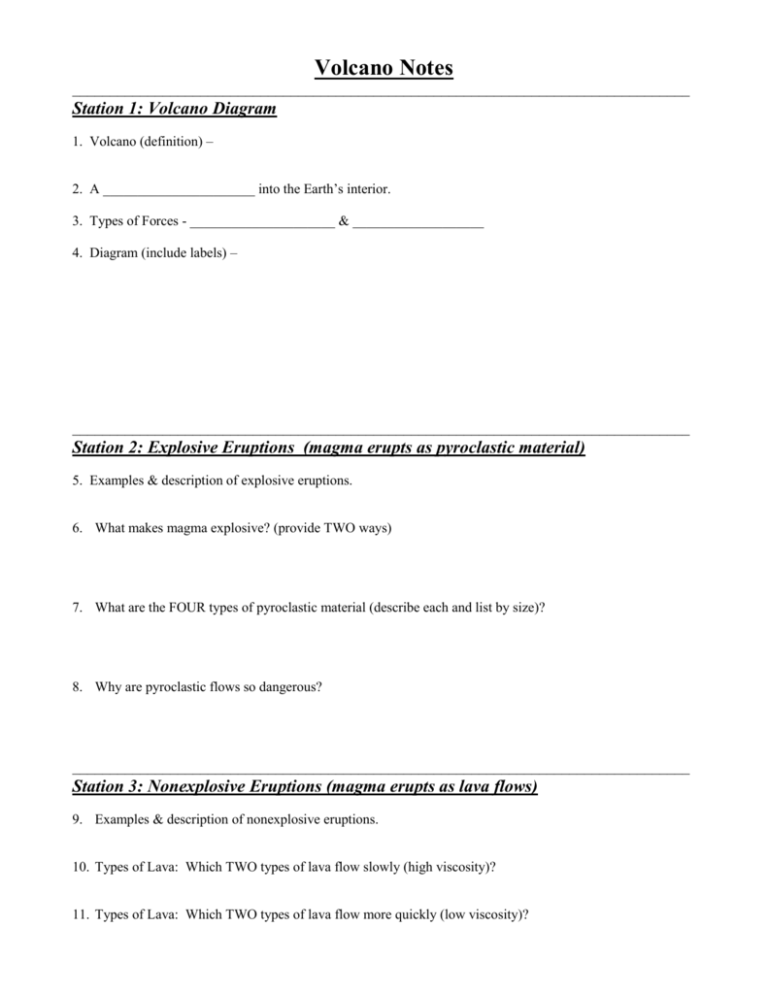
Volcano Notes __________________________________________________________________________________ Station 1: Volcano Diagram 1. Volcano (definition) – 2. A ______________________ into the Earth’s interior. 3. Types of Forces - _____________________ & ___________________ 4. Diagram (include labels) – __________________________________________________________________________________ Station 2: Explosive Eruptions (magma erupts as pyroclastic material) 5. Examples & description of explosive eruptions. 6. What makes magma explosive? (provide TWO ways) 7. What are the FOUR types of pyroclastic material (describe each and list by size)? 8. Why are pyroclastic flows so dangerous? __________________________________________________________________________________ Station 3: Nonexplosive Eruptions (magma erupts as lava flows) 9. Examples & description of nonexplosive eruptions. 10. Types of Lava: Which TWO types of lava flow slowly (high viscosity)? 11. Types of Lava: Which TWO types of lava flow more quickly (low viscosity)? __________________________________________________________________________________ Station 4: Types of Volcanoes For each volcano type describe (1) how it forms; (2) its shape; & (3) provide an example. 12. Shield Volcanoes - 13. Cinder Cone Volcanoes - 14. Composite Volcanoes (Stratovolcanoes) - __________________________________________________________________________________ Station 5: Formation of Magma 15. Using the temperature and pressure graph, explain the relationship of temperature & pressure on the melting point of a substance. 16. How does pressure cause rock to stay solid under high temperatures? 17. How does magma form in the mantle? __________________________________________________________________________________ Station 6: Volcanic Eruptions and Climate Change 18. Place the following events in order to show how a single volcanic eruption can cause starvation and disease worldwide. _____ _____ _____ _____ _____ _____ Less sunlight reaches the earth. There is a large scale volcanic eruption. The earth experiences longer, harsher winters and wetter, milder summers. The average global temperature drops. Worldwide food shortages occur because of widespread crop failures. Volcanic ash and sulfur-rich gases spread through the atmosphere. 19. What is the nickname associated with the 1815 eruption of Tambora? Why does it have this name? 20. Provide a recent example of a volcanic eruption that caused climate change. How much did it actually change global climate?
